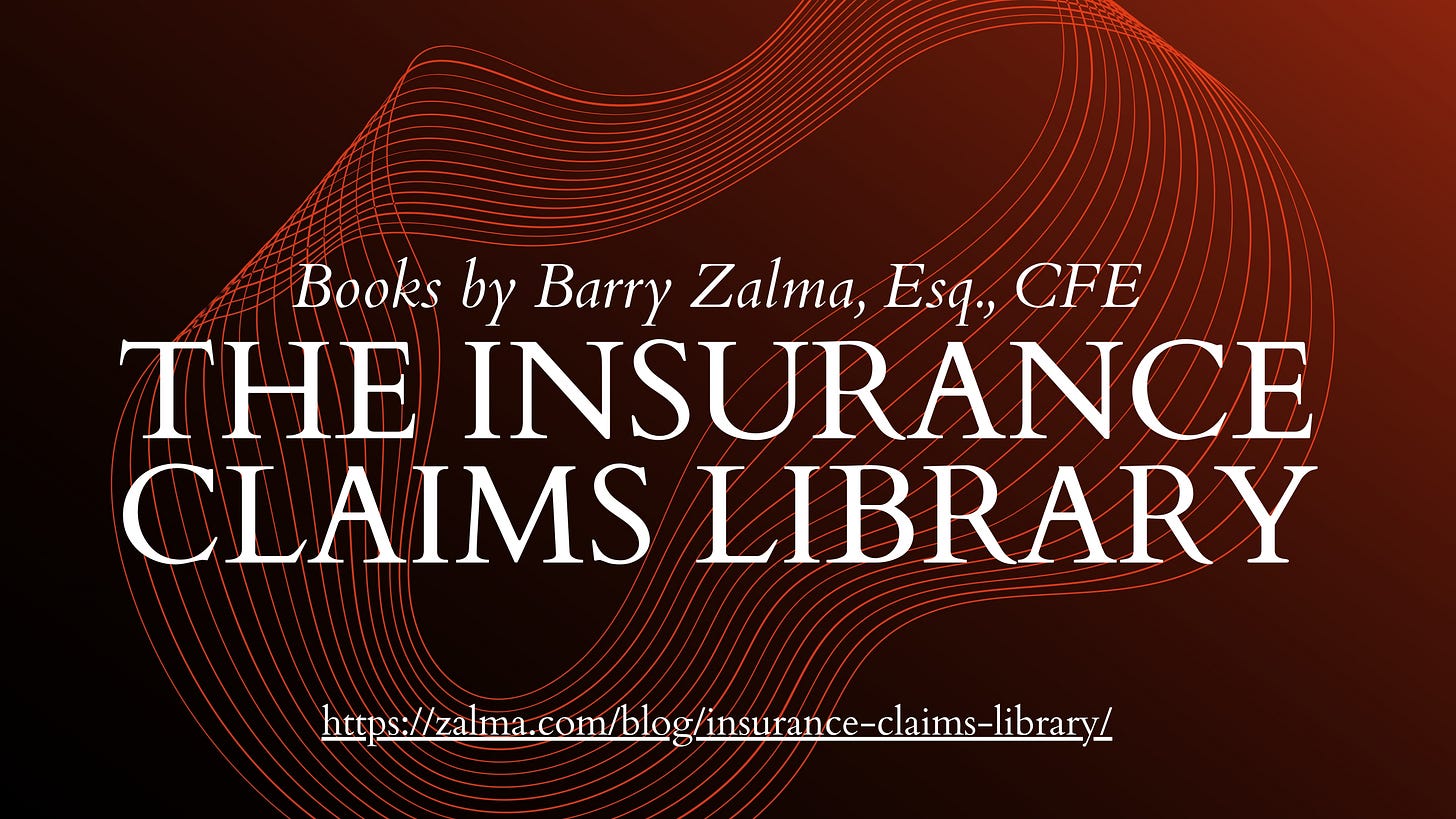Read the full article at https://lnkd.in/gFaFwFTY, see the full video at https://lnkd.in/gPvzTw_3 and at https://lnkd.in/gy6u9uGk and at https://zalma.com/blog plus more than 4800 posts.
Post 4828
Rose Karam, an insured, appealed from the superior court’s grant of summary judgment in favor of her residential property insurer, Mercury Casualty Co. In Rose A. Karam v. Mercury Casualty Company, No. 2 CA-CV 2023-0112, Court of Appeals of Arizona, Second Division (May 31, 2024) her suit against Mercury was defeated by admission that she had no case because she responded late to requests.
FACTUAL BACKGROUND
Karam was an insured under a Mercury homeowner’s policy. After suffering a fire at her home, Karam filed a property loss and damage claim under the policy, citing damage to a piano and a wall mirror. Following receipt of payments by Mercury Karam complained to Mercury that she was underpaid for personal property losses.
Two years later, Karam sued Mercury for insurance fraud, consumer fraud, and breach of contract. Thereafter, on August 30, 2022, Mercury served Karam with a set of discovery requests including interrogatories and requests for admission. Karam’s response to the requests for admission were due within thirty days of service she provided her responses months later on December 1, 2022.
Mercury moved for summary judgment. By its motion, Mercury asserted, in part, that because Karam’s responses to the requests for admission were untimely, the requests were deemed admitted. Due to those admissions-including that Karam had been fully and fairly paid for her losses, that Mercury had not breached the insurance policy, and that Karam had suffered no damages-Mercury claimed it was entitled to judgment as a matter of law on Karam’s breach of contract claim.
The court further determined that, even considering her actual, albeit untimely, responses to the requests for admission, Karam “failed to produce admissible evidence creating a genuine issue of fact for trial.”
DISCUSSION
The Court of Appeals will only affirm a grant of summary judgment if the evidence produced in support of the defense or claim has so little probative value that no reasonable person could find for its proponent.
Admissions
Arizona Rule 36(a)(1) provides that “[a] party may serve on any other party a written request to admit . . . the truth of any matters . . . relating to . . . facts, the application of law to fact, or opinions about either; and . . . the genuineness of any described documents.” The purpose of requests for admission is to expedite the trial and to relieve parties of unnecessary costs in proving facts.
Once a party is served with requests for admission, failure to respond within 30 days the rule provides “[a] matter admitted under this rule is conclusively established unless the court, on motion, permits the admission to be withdrawn or amended.”
Karam conceded on appeal that she did not respond to Mercury’s requests for admission within the required thirty-day period. Therefore the superior court did not abuse its discretion in deeming the statements in the requests for admission admitted.
Karam effectively admitted that she had been fully and fairly compensated for the claims she submitted, that Mercury did not breach the insurance policy, and that she did not otherwise have damages. Those admissions – even each standing alone – defeat a claim for breach of the insurance policy.
Given the allegations in Karam’s complaint and her admissions made by operation of law, there remained no material issue in dispute and Karam can no longer carry her burden of proof in this action.
Mercury was entitled to summary judgment and the court did not err in granting Mercury’s motion.
ZALMA OPINION
A lawyer practicing in Arizona that does not comply with the rules concerning Requests for Admission will always lose because his opponent will always send a Request including the ultimate facts about the case. Mercury’s counsel took advantage of the Arizona rule and obtained admissions that resulted in the resolution of the case in its favor. Karam is not without a remedy, she has a cause of action against her lawyer.
(c) 2024 Barry Zalma & ClaimSchool, Inc.
Please tell your friends and colleagues about this blog and the videos and let them subscribe to the blog and the videos.
Subscribe to my substack at https://barryzalma.substack.com/subscribe & Subscribe to my substack at https://lnkd.in/gmmzUVBy
Go to X @bzalma; Go to Newsbreak.com https://www.newsbreak.com/@c/1653419?s=01; Go to Barry Zalma videos at Rumble.com at https://rumble.com/c/c-262921; Go to Barry Zalma on YouTube- https://www.youtube.com/channel/UCysiZklEtxZsSF9DfC0Expg.
Go to the Insurance Claims Library – https://lnkd.in/gwEYk
















